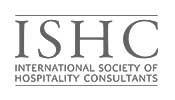When being hospitable can land you in trouble (part 2) | By William Bosch, ISHC,and Jonathan Drimmer
In our previous article, we introduced the Foreign Corrupt Practices Act, discussing its basic provisions, its growing importance as a law enforcement tool by U.S. authorities, and its broad potential application to hotel industry vendors in the context of the government’s prosecution of York International, a global heating and air conditioning company. As we noted, the FCPA generally prohibits giving “anything of value” to a foreign official to acquire an unjustified benefit. The nature of the offence, and hence the penalty, is measured more by the amount of the benefit obtained than by the size of the payments. 
In this week’s article, we focus on some of those activities to highlight why FCPA compliance needs to be a priority for hotel developers, owners, lenders, operators, franchisors, contractors, vendors and employees.
Before the shovel hits the dirt
By some measures the largest world-wide industry, hospitality continues to expand its reach across the globe, even as we endure a worldwide economic downturn. Hotel development in China, India and Russia, for example, reflect demographic realities and economic opportunities many hoteliers are pursuing at warp speed. But the great leap from finding opportunities to pushing that first shovel into the dirt often involves—and sometimes requires—interacting with government personnel and their family members. At the development stage or when acquiring an existing property, the stakes are high, and the prospects for running afoul of the FCPA are abundant.
In China, for example, hotel developments by foreign investors require numerous government approvals and permits. Foreign companies might participate in hotel development in China only through a locally incorporated “foreign investment enterprise”, typically structured as a joint venture with a local party, which might or might not be state-owned. The establishment of the FIE must be approved by the Ministry of Commerce at the central or local government level depending on the size of the investment. The State Administration of Industry and Commerce must issue the FIE a business license. The developer’s FIE will need various local government approvals to secure land use rights (essentially long-term leases) and undertake construction. A land grant “premium” to the government sometimes is required. Various ancillary permits also might be necessary for the FIE to operate effectively, e.g., tax registrations, foreign exchange registrations, trademarks, et cetera. (The acquisition of a hotel requires similar government approvals and permits.)
All of these interactions with government agencies offer opportunities for corruption. In China, it’s also common for local partners to handle government relations and approvals. This process might be opaque to the foreign party, creating additional corruption risks. As a consequence, U.S. developers in China must be vigilant to comply with the FCPA and with China’s own anti-bribery laws. Although China is a particularly striking example, similar government involvement and corruption risks are common with hotel development in many rapidly developing economies.
Getting locked up for locking down financing
Even if you navigate through the development approvals safely, financing a hotel project also presents numerous opportunities to violate the FCPA because government officials often stand between you and the funding necessary to get the project off the ground. Direct investment by host governments is common and, in some places, is fueled by a government-sponsored development agency targeting the hospitality industry. In India, the government has been exploring investments specifically in convention hotels as part of the country’s development of its “core infrastructure.”
Even if you think you’re not dealing directly with a government entity, you still might be interacting with a foreign government official for FCPA purposes. Anyone employed by a government agency is covered, which can include employees of for-profit entities owned or controlled, in whole or substantial part, by the government. With bank nationalization becoming increasingly common, even some established names in hotel lending have some government connection that can lead to a potential FCPA violation.
FCPA exposure also arises when seeking financing or guarantees from multilateral government-backed organizations, such as the Overseas Private Investment Corporation or the World Bank’s International Finance Corporation and Multilateral Investment Guarantee Agency. When securing commitments, working with the underwriters, negotiating terms, documenting the loan and closing on the funding, the incentives to grease the skids are prevalent but must be resisted.
Contractors and vendors in the crosshairs
As the York International case illustrates, perhaps no aspect of the hospitality industry is more vulnerable to FCPA violations than the highly competitive construction and supplier sectors. Any contractor seeking to secure an opportunity to participate in the design, construction and outfitting of a hotel’s furniture, fixtures and equipment, and any vendor seeking to provide operational supplies or services, must be extremely vigilant that its sales team adheres to high standards of conduct, especially when the hotel is developed, owned or financed by a government-related entity. Although York International involved the more obvious malfeasance of a cash payment to government officials through an intermediary, it’s important to remember “anything of value” given to a foreign official to acquire an unjustified benefit could give rise to an FCPA violation, risking heavy civil and criminal penalties. Some relatively common but questionable operating practices therefore could be problem areas, including advertising “allowances” and rebates – some of which are indistinguishable from kickbacks, as we recall from the Woodley Road case against Sheraton.
Management companies are not immune
Branded and independent management companies also must be sensitive to the requirements of the FCPA. Key money to win a flag, for example, or junkets to existing resorts to win new business, could give rise to an FCPA violation if the objective is to influence a foreign government official. Giving anything of value to foreign officials to facilitate licenses, win government business, forge compromises on tax liabilities, or smooth immigration or work permit issues for hotel employees all could fall under the reach of the FCPA.
With the potential for a snakebite seemingly lurking under every rock, the temptation might be to ignore the issue altogether and hope for the best. As we’ll discuss next week, there are prudent steps that can and should be taken to lessen the risk of an FCPA violation. Business still can get done. It just needs to be conducted with sensitivity to the U.S. government’s efforts to promote commercial fairness and transparency for all individuals and businesses operating abroad—including those in the hospitality industry.
Next week’s article focuses on how a company can avoid becoming the latest statistic in the growing FCPA trend.

 William Bosch is a partner in the Washington office of Steptoe & Johnson LLP, where he is a member of the Litigation group. Mr. Bosch concentrates his practice on complex litigation and trials, with a particular emphasis on issues involving commercial disputes and intellectual property. Mr. Bosch has successfully litigated cases on behalf of his clients in state and federal courts throughout the country, both at the trial and appellate levels, and also has handled numerous matters through alternative dispute resolution, including mediation and arbitration. Notably, Mr. Bosch was trial counsel in the landmark Woodley Road case that resulted in a multi-million dollar jury verdict against a major hotel management company on behalf of the hotel owner. Notable arbitrations include the enforcement of contractual agreements on behalf of an international trade show association and the valuation of a domestic operating affiliate of a London-based multinational lodging company. More...
William Bosch is a partner in the Washington office of Steptoe & Johnson LLP, where he is a member of the Litigation group. Mr. Bosch concentrates his practice on complex litigation and trials, with a particular emphasis on issues involving commercial disputes and intellectual property. Mr. Bosch has successfully litigated cases on behalf of his clients in state and federal courts throughout the country, both at the trial and appellate levels, and also has handled numerous matters through alternative dispute resolution, including mediation and arbitration. Notably, Mr. Bosch was trial counsel in the landmark Woodley Road case that resulted in a multi-million dollar jury verdict against a major hotel management company on behalf of the hotel owner. Notable arbitrations include the enforcement of contractual agreements on behalf of an international trade show association and the valuation of a domestic operating affiliate of a London-based multinational lodging company. More...
 Jonathan C. Drimmer is a partner in the Washington office of Steptoe & Johnson LLP. Mr. Drimmer’s practice focuses on the extraterritorial application of U.S. laws, assisting clients develop preventative strategies, navigate discrete questions and problems, and by defending them in litigation. A recognized authority on the Alien Tort Claims Act (ATCA), he advises and represents clients in matters related to the ATCA, the Foreign Corrupt Practices Act, human rights, Corporate Social Responsibility initiatives, financial reporting and securities laws, cross-border U.S. government enforcement efforts, business and personal tort liability, money laundering and other areas. More...
Jonathan C. Drimmer is a partner in the Washington office of Steptoe & Johnson LLP. Mr. Drimmer’s practice focuses on the extraterritorial application of U.S. laws, assisting clients develop preventative strategies, navigate discrete questions and problems, and by defending them in litigation. A recognized authority on the Alien Tort Claims Act (ATCA), he advises and represents clients in matters related to the ATCA, the Foreign Corrupt Practices Act, human rights, Corporate Social Responsibility initiatives, financial reporting and securities laws, cross-border U.S. government enforcement efforts, business and personal tort liability, money laundering and other areas. More...
Steptoe & Johnson LLP
www.steptoe.com/
1330 Connecticut Avenue, NW
USA - Washington, DC 20036
Phone: 202/429-8111
Fax: 202/261.0616
When Being Hospitable Can Land You In Trouble | By William Bosch, ISHC,and Jonathan Drimmer
